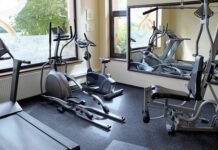Nearly 75% of our body mass consists of water, and it is one of the next very important to stay alive after oxygen. Water does not have any calorific content of its own but staying hydrated during any training schedule is most important, particularly in the hot summer months. Hydrating the body flushes out the toxins and helps reduce muscle cramps, balances the hormones in the body, allows proper brain function, and transporting vitamins and minerals to particular organs. One can stay without food for six weeks, but it is next to impossible to stay alive without water after seven days. Thus, we can understand the need for water for our body, particularly if one is undergoing a workout training session.
The Need For Water During Training
During any physical training session, the body heats up, and salt and water drain out of the body through the sweat glands. Thus, one has to maintain the fluid equilibrium in the body, which can be only done through water, and you can add some vitamins, minerals, salt, and sugar to your diet plan to stay hydrated. It helps to improve the body’s cardiac system during the training and allows the body to cool down fast. Your trainer will always encourage you to sip some water after each training session or at regular intervals so that there is no dehydration and the body’s cooling process is not delayed. You can suffer from muscle cramps and cognitive disorders due to a lack of electrolytes. It can also be the cause of heatstroke while training in the hot and humid summer seasons. In this case, you can take some electrolyte drinks in summer to keep your body hydrated.
During hot summer training sessions, one can get headaches, dry skin, rapid heartbeat, dry mouth, fever, shortness of breathing, less urination, and many more. These are all signs of dehydration. Drinking water at regular intervals keeps the body hydrated and betters the performance. It has been seen through research that if there is a 2% loss of body weight due to dehydration, the training performance stats to give negative results. Similarly, if there is a 5% loss of weight due to dehydration, the performance of any athlete or sports personality reduces by about 30%.
Thus, to reduce water loss and vital salts like sodium and potassium through sweat, one should drink water and some sports drinks to keep the balance inside the body. An imbalance in sodium and potassium, and calcium can affect the cognitive functions of the brain, weaken the bones, and enhance muscle cramps. Therefore, one should always stay hydrated during hot summers, not only with water but with the best sports drink or any other concoction suggested by the personal trainer.
During any form of physical training in hot summers, people should always pre-hydrate themselves for several hours to have proper fluid absorption in the body. One should take the body weight before and after any workout and estimate the hydration levels. Any drop in bodyweight will signify that one is not adequately hydrated. A loss of one pound body weight is equal to a 16 ounce loss of body fluid. Thus, any loss greater than or equal to 2% signifies the body is not adequately hydrated, harming the overall performance.
Therefore, apart from adequate pre-hydration, one should also carry on hydrating the body during the training session and after finishing the session in all weather, particularly in hot summers. Everyone should follow some hydration plan during the training sessions. One should always consume some fluid that includes around 80 to 200 mg of potassium, 450 to 700 mg of sodium per liter, and a carbohydrate concentration of 5 to 10%. It will allow the body to maintain an electrolytic balance. Again one can sip 6 to 8 ounces of fluid after every 15 minutes of training. One should also stay well hydrated even after the completion of the daily workout.
Overview
Staying adequately hydrated while training during the hot summers can boost the performance to a much extend. It helps the trainee to keep energetic and allows giving the best performance without any injury. The loss of water and salts, and minerals during training should always be substituted to stay fit.

























